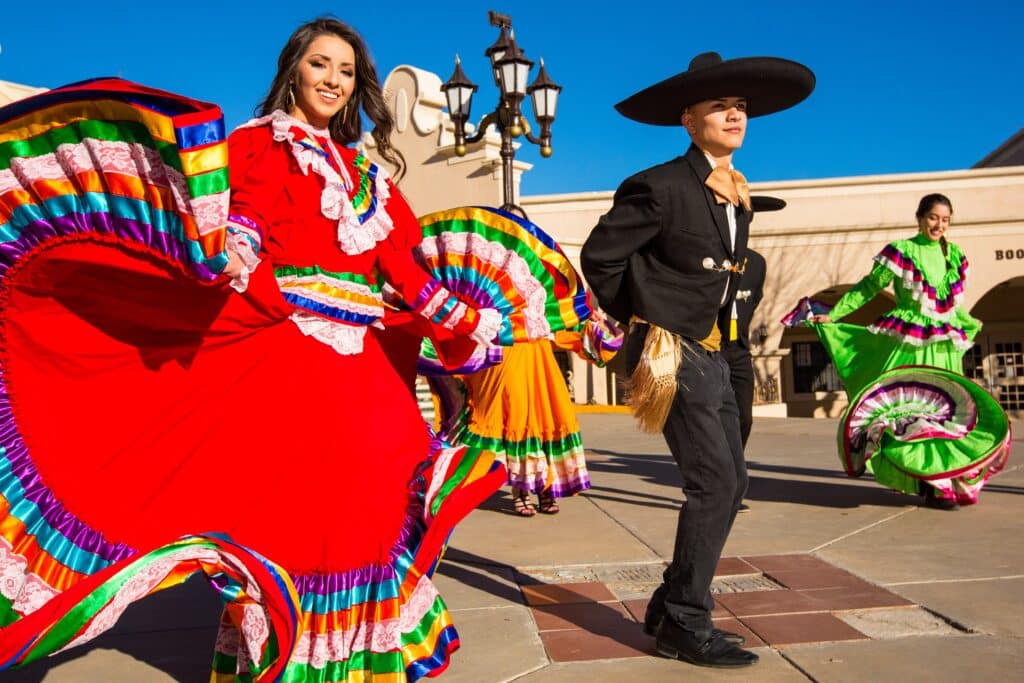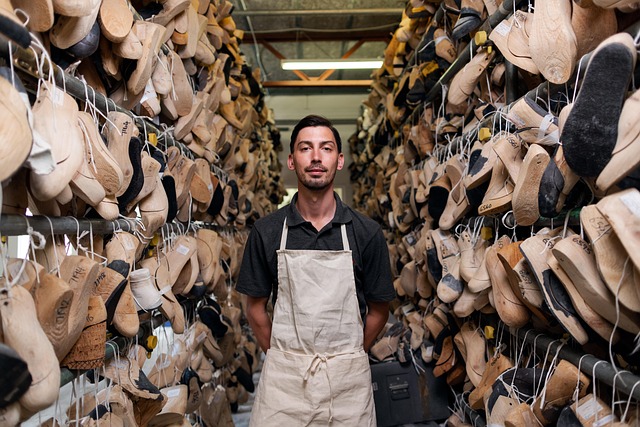
24+ Insightful Mexican Quotes, Sayings and Proverbs
Mexican quotes, sayings and proverbs ( dichos ) bring the vibrant culture of this stunning country alive.
They also give us a great way to flavor our own Spanish language practice.
How we talk about important matters like relationships, money and food informs our understanding of who we are as a culture.
Let’s gain some insight into Mexican culture (and practice our Spanish!) by checking out 24+ common sayings from Mexico.
Contents
- Mexican Sayings About Life
- Mexican Provebs About Relationships
- Mexican Quotes About Food
- Mexican Sayings About Money
- Mexican Proverbs About Nature
- Common Questions About Mexican Sayings
- Mexican Slang and Expressions
- How Mexican Sayings Help Your Spanish
- And One More Thing…
Download: This blog post is available as a convenient and portable PDF that you can take anywhere. Click here to get a copy. (Download)
Mexican Sayings About Life
1. En boca cerrada no entran moscas
Literal meaning: No flies enter a closed mouth.
If I had a dollar for every time my Abuela (Grandma) said this to me and my cousins, I’d be rich!
It basically means to keep quiet, mind your own business or don’t comment on something that you know nothing about.
2. Al mal tiempo, buena cara
Literal meaning: To bad times, a happy face.
The power of positive thinking crosses cultures. This is a saying that reminds us to be positive even through the hard times.
3. Zapatero, a tus zapatos
Literal meaning: Shoemaker, to your shoes.
This is a nice way of telling someone to mind their own business, similar to “tend to your own knitting” in English.
4. Más sabe el diablo por viejo que por diablo
Literal meaning: The devil knows more because he is old rather than because he is a devil.
In other words, wisdom comes with age.
This one’s really popular, which can tell you heaps about the way the culture sees its elderly. If you spend any time in Mexico, you’re sure to hear it!
5. El que busca encuentra
Literal meaning: If you search you will find.
Look for what you want out of life and you’re sure to find it! The key is to actively go out there and do something, rather than sit around waiting for something nice to happen to you.
Mexican Provebs About Relationships
6. A falta de amor, unos tacos al pastor
Literal meaning: In the absence of love, some tacos al pastor.
Tacos al pastor originate in Mexico and feature pork that’s been marinated in pineapple, peppers and spices, usually with bits of pineapple included in the mix. Yum!
So if your love life isn’t going too well, or you’re feeling lonely, don’t waste too much time worrying about it. Have a taco, instead!
7. Cuentas claras, amistades largas
Literal meaning: Clear accounts, long friendships.
Similar to our saying “Short reckonings make long friendships,” this proverb serves as a reminder to settle your accounts as soon as possible!
If you ever borrow something or owe money to someone, you should return or pay it back in a timely manner to ensure your relationship continues smoothly.
8. El que con lobos anda, a aullar se enseña
Literal meaning: He who runs with wolves will learn to howl.
You’re influenced by the company you keep.
And yes, this is a proverb that many of us hear a lot from parents and grandparents during those teenage years!
It’s not confined to Mexico: Other Spanish-speaking countries use this proverb, too.
9. Desgracia compartida, menos sentida
Literal meaning: Shared misfortune is less felt.
In English, we say “a burden shared is a burden halved.” Both expressions reflect the human need for companionship and emotional support.
The Mexican expression also embodies the cultural value of community spirit. In other words, when times are tough, everyone is in it together.
10. Agua que no has de beber, déjala correr
Literal meaning: Water you don’t have to drink, let it run.
Generally, this expression means to mind your own business. It is also apt advice against making a commitment you can’t keep or stringing someone along. If you’re not serious, let them go.
Mexican Quotes About Food
11. A darle, que es mole de olla
Literal meaning: Hit it, ’cause it’s mole de olla
This is such a great cultural tidbit. It means that you need to have enthusiasm for whatever task is before you.
Mole de olla is a traditional Mexican soup. It’s nourishing and tasty and is a staple for many families. In short, mole de olla is widely eaten and well-loved!
It’s considered to be a fine addition to one’s life, so when something’s compared to the soup, it must be something worth doing.
This soup doesn’t just pull itself together; it’s not a recipe for beginners. So to many, this proverb indicates that a task might be lengthy or difficult but it’s still something worth doing.
12. Estoy pariendo chayotes
Literal meaning: I’m birthing chayotes.
A chayote is a type of gourd that’s found in Mexico and other parts of Central and South America. It’s bumpy and hard, something that’s definitely more pleasant to eat than give birth to.
This saying indicates that, like giving birth to a spiky pear-shaped pumpkin, you’re going through a difficult or unpleasant time.
13. A falta de pan, tortillas
Literal meaning: Lack of bread, tortillas.
If you don’t have bread, use tortillas. Although honestly, this has little to do with either bread or tortillas!
It’s all about making do with what’s on hand. Use what you have and it’ll work out!
14. A la mejor cocinera se le queman los frijoles
Literal meaning: Even the best cook burns her beans.
This proverb is used to remind people that even someone who’s an expert at something can mess it up on occasion. Basically, we all make mistakes!
15. Barriga llena, corazón contento
Literal meaning: Full belly, happy heart.
You know that grandparent, aunt or uncle who always insists on feeding you even if you just ate? In Mexico, they’ll probably say this phrase while doing it. Food is love!
Mexican Sayings About Money
16. Con dinero baila el perro
Literal meaning: With money the dog dances.
This is one of those two-sided proverbs. That is, it’s got more than one meaning.
To some, it means that everybody has a price. Pay enough and even a dog will dance.
It also means that if you work hard to get paid, you’ll be happy. You might even be happy enough to dance!
17. Lo barato cuesta caro
Literal meaning: Cheap is expensive.
Invest wisely so you don’t need to replace a cheap item. In other words, buy quality and you won’t need to buy the same product again when it inevitably falls apart.
18. No todo lo que brilla es oro
Literal meaning: Not all that glitters is gold.
If you’re a Tolkien fan, you know a slightly different version of this saying from “The Lord of the Rings.” Both versions warn that appearances may be deceiving, but this one emphasizes that looking sparkly doesn’t mean a thing has real value. It might be fool’s gold instead.
And the inverse is true, too: a humble appearance may disguise a diamond (or an exiled king) in the rough!
19. Honra y dinero se ganan despacio y se pierden ligero
Literal meaning: Honor and money are gained slowly and lost quickly.
This is a straightforward warning that one reckless decision can destroy the work of years, so it’s better to be cautious. Spending money is easier than earning it, so make wise decisions if you want to hold onto your wealth and your reputation.
Mexican Proverbs About Nature
20. Cuando el río suena es que agua lleva
Literal meaning: When the river sounds, water is running.
This one’s similar to the “Where there’s smoke, there’s fire” maxim.
It’s often used to mean that if you want to get to the truth of something, go to the source.
21. Más vale un pájaro en mano, que cien volando
Literal meaning: A bird in hand is worth more than one hundred in flight.
This is similar to the well-known “A bird in the hand is worth two in the bush” proverb you’ve probably heard in English. In other words, it’s better to do one thing right than many things poorly.
The Mexican twist goes a bit further by replacing bushes with 100 flying birds. That paints a vivid mind picture, doesn’t it?
22. Árbol que nace torcido, jamás su tronco endereza
Literal meaning: A bent tree never has a straight trunk.
I think a lot of us can relate to this one—especially around the New Year.
Can you guess what it might mean? Yep: Árbol que nace torcido, jamás su tronco endereza is the equivalent to “Old habits die hard.”
23. Perro que ladra no muerde
Literal meaning: A dog that barks does not bite.
As you can guess from the literal meaning, our equivalent to this phrase in English is when someone’s “bark is worse than their bite.”
This phrase always reminds me of this hilarious video which perfectly demonstrates Perro que ladra no muerde.
24. Camarón que se duerme, se lo lleva la corriente
Literal meaning: The shrimp that falls asleep is swept away by the current.
This saying is much more creative than our English version, “You snooze, you lose.”
I’m not sure about you, but I can picture it clearly (sleeping shrimp and all) in my head!
Common Questions About Mexican Sayings
- What is the Mexican proverb about the house?
A: La casa no se reclina sobre la tierra, sino sobre una mujerThis means “The house does not rest upon the ground, but upon a woman.”
In traditional Mexican culture, the women are responsible for taking care of the household while the men work. This proverb is a reminder that a woman’s work is work, too, and a happy home is impossible without it.
- What is the Mexican proverb about hard work?
A: A quien madruga, Dios lo ayudaThis can be translated as “He who rises early is helped by God.”
Similar to “The early bird catches the worm” in English, this proverb advises that success will come to those who make an effort.
- What is the Mexican proverb for “little by little one goes far”?
A: Poco a poco se anda lejosThis is not necessarily a Mexican proverb, but a general Spanish proverb to show that progress comes with commitment. Keep at it and you’ll go far. (Like your Spanish studies!)
A similar proverb which is indeed Mexican is De poquito en poquito, se llena el jarrito which translates to “little by little, the jug gets filled.”
Like the phrase above, it’s also used to say that something can be accomplished through slow—but steady—progress.
Mexican Slang and Expressions
Mexican sayings and proverbs often make their way into everyday language, especially in the form of slang. Common expressions that might not make sense translated literally bring color to Mexican Spanish.
If you’re at the point in your language learning journey where you want to add some authentic proverbs to your vocab arsenal, you may also want to look into these Mexican slang words and expressions:
Mexican Slang: 90+ Spanish Words and Expressions to Sound Like a Local (with Audio and a Quiz) | FluentU Spanish Blog
Mexican slang is both important to sound local and fun to use. This post will show you over 90 of the most common Mexican slang terms and how they are used. We will also…
You can find even more essential expressions and sayings from Mexico in this YouTube video, as well as a great tool for how to learn the phrases and more like them:
If you want to watch how Mexican people really use slang and the sayings we’ve seen in this post, the FluentU program uses Spanish-language videos like movie clips and commercials to teach Spanish.
FluentU takes authentic videos—like music videos, movie trailers, news and inspiring talks—and turns them into personalized language learning lessons.
You can try FluentU for free for 2 weeks. Check out the website or download the iOS app or Android app.
P.S. Click here to take advantage of our current sale! (Expires at the end of this month)

How Mexican Sayings Help Your Spanish
It’s generally accepted that the best way to learn language is through immersion: just go someplace, study the language and absorb the culture.
In theory, that’s a super idea, but in reality, it’s not possible for everyone to head out on an immersive trip.
An alternative is bringing language and culture to the learner. That means a solid language course and exposure to some first-rate cultural points.
How do proverbs fit into this? They’re nuggets of wisdom that are indicative of a culture. So learning about people, how they live and what they think through the proverbs they use is an excellent way to gain cultural insight.
Additionally, Mexican proverbs provide lots of vocabulary to help build strong language skills.
Keep a dicho journal to add to your reading and writing practice. It’s a fun way to add proverbs to your Spanish program.
If you’re planning to dive a cenote on the Yucatan Peninsula, attend Mexican cooking school or just wander the incredible ruins in this history-rich country, you’ll want to get some of these proverbs under your belt.
Proverbs help you understand the culture and make it easier to fit into new situations. They’re a language learner’s dream because they teach more than words—they teach customs and beliefs!
Good luck!
And One More Thing…
If you've made it this far that means you probably enjoy learning Spanish with engaging material and will then love FluentU.
Other sites use scripted content. FluentU uses a natural approach that helps you ease into the Spanish language and culture over time. You’ll learn Spanish as it’s actually spoken by real people.
FluentU has a wide variety of videos, as you can see here:

FluentU brings native videos within reach with interactive transcripts. You can tap on any word to look it up instantly. Every definition has examples that have been written to help you understand how the word is used. If you see an interesting word you don’t know, you can add it to a vocab list.

Review a complete interactive transcript under the Dialogue tab, and find words and phrases listed under Vocab.

Learn all the vocabulary in any video with FluentU’s robust learning engine. Swipe left or right to see more examples of the word you’re on.

The best part is that FluentU keeps track of the vocabulary that you’re learning, and gives you extra practice with difficult words. It'll even remind you when it’s time to review what you’ve learned. Every learner has a truly personalized experience, even if they’re learning with the same video.
Start using the FluentU website on your computer or tablet or, better yet, download the FluentU app from the iTunes or Google Play store. Click here to take advantage of our current sale! (Expires at the end of this month.)







